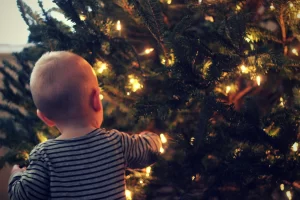By Iris Farrou
18 Aug, 2023
Childhood Health, Early Childhood Education, Fatherhood, Lifestyle Tips, Mental Health, New Moms, Parenting, Toddler Health, Young adults & teens
Abuse, Accident, ACE, Childhood Illness, Childhood Trauma, Children, Community, Divorce, Family Dynamic, Financial Stress, Grieving, Kids, Mental Health, Neglect, Nightmares, Pediatric, Pediatric Mental Health Care, PTSD, Teenager, Toddler Trauma, Trauma, Traumatic Childhood Experiences, Violence, Witness, Witnessing

When we’re getting ready to start a new family, we may find ourselves reflecting on our own childhood experiences, and comparing with our partner how each person grew up– perhaps the goal of this introspection is to create a new family that is healthy, happy, and flourishes with good communication. If you are in the process of family planning, you may want to take into account ACEs: Adverse Childhood Experiences.
What are they?
Adverse Childhood Experiences are traumatic events children experience between the ages of 0-17. These have long lasting effects, may lead to chronic health conditions, and people address them well into adulthood. It is important to remember that ACEs affect a child’s brain, and how they experience the world.
ACEs are quite common, with 60-80% of US adults reporting they have had at least one adverse childhood experience up until age 17, and 1 in 6 US adults saying they’ve had four or more. The most potentially traumatic ACEs can include experiencing violence, abuse, or neglect in the home, neighborhood, or school, witnessing violence in the community or otherwise living in a dangerous environment (war zone, poverty stricken areas, etc.), going through a natural disaster, witnessing serious injuries or the death of another person, losing a loved one or experiencing parental loss due to separation. However, this is by no means an exhaustive list of possible ACEs: any event that may cause trauma and long-term stress can be classified as an adverse childhood experience that adversely affects a person as an adult.
How do I know if my child has had an ACE?
The effects of a traumatic or stressful event may not be immediately visible, or take place soon after the traumatic event has occurred. If your child confides something in you that would be traumatic, then that is a clear indication of an event that would warrant immediate support–with the assistance of a mental health professional who specializes in children or teenagers.
Additionally, if you are going through something as a family, such as a divorce, death, fatal accident or illness, natural disaster, poverty, community violence, unemployment, housing and/or financial insecurity, you may want to address those events as potentially traumatic for your child. We cannot always correct or control life’s adversities, but we can recognize them for what they are and present this as a starting point to healing. If you recognize, as a family, that an event has been traumatic then this shows to your child that it’s ok for things to not be “normal”–that it’s part of life, and that our reactions or daily life will change when something happens.
If there is an event or experience that you do not know about, once your child has had time to process the experience you may start noticing signs of trauma that could include, but are not limited to: difficulty sleeping or having nightmares, wetting the bed, changes to their mood, fear of other people, difficulties in school, avoiding situations, events, or people (these may be directly associated with the traumatic event), as well as difficulty showing affection towards family and friends–especially if this is a change from their usual behavior.
How can we avoid ACEs?
The unfortunate truth is that we cannot completely eliminate ACEs, as much as we may want to. What we can do, however, is raise awareness about them so that we can all start thinking differently about childhood trauma. Historically disadvantaged populations are more susceptible to trauma, but that does not mean that everyone else is excluded. The causes may be societal, historical, natural forces, or people, but each one of us can help lessen the blow of an ACE: whether you are a parent, friend, caregiver, teacher, or neighbor. Raising awareness of ACEs means switching the focus from individual responsibility to community solutions: we can all help prevent ACEs, and help children develop strong coping mechanisms. It is important to reduce the stigma associated with parents who struggle to provide a safe environment for their children, and seek community and/or government support to do so. It is also important to remember that any one of us can promote safe, stable, and nurturing environments where children are present.
https://www.cdc.gov/violenceprevention/aces/fastfact.html
https://my.clevelandclinic.org/health/symptoms/24875-adverse-childhood-experiences-ace
More
By Iris Farrou
13 Jan, 2023
Fatherhood, Lifestyle Tips, Mental Health, New Moms, Parenting, Toddler Health, Your baby's health
ADHD, Children, Learning Disabilities, Neurodivergence, Neurodivergent, Preschool, Toddler Mental Health

There is a general tendency for parents to become most concerned about their children’s neurological development when it’s time for their kids to join a preschool or other educational institution. A lot of schools are aware of, and keep an eye out, for behavioral patterns that may indicate a child is neurodivergent: this can span from what is commonly referred to as learning disabilities, to ADHD, and autism. Though schools can be a great resource in helping children with neurodiverse brains walk through life, the most important coping strategies and mechanisms come from the family unit itself. In fact, there are many signs well before a child joins the school system that they may have a neurodivergent brain.
What are those terms?
Neurotypical children are those whose brains develop in ways that are typical for their age and stage. About 1 in 5-6 children exhibit variations in their brain development, the most common of which are dyslexia, attention deficit hyperactivity disorder, and autism. These children can be described as neurodivergent. These differences are not something that needs to be treated, or fixed: rather, they are a part of natural variation. When we refer to treatments about neurodivergent children, we mainly talk about coping mechanisms by the child itself, the family, and the school system–in some cases, treatment does include medications as well, but in no case is the end goal to “fix” a child.
How do I recognize the symptoms?
Because we are talking about variations in the brains and its functions, there is no clean-cut way in which a parent can determine their child is neurodivergent. Instead, there is most usually a combination of signs in their behavior–and if you discuss the details of those with a physician or therapist, you can gain more insight into how to best accommodate your child. Let’s start with some symptoms that if persistent and repeated over the course of a few months, may indicate ADHD:
- Trouble with details and making careless mistakes
- Trouble focusing on tasks of at play, and trouble focusing when an adult speaks to them
- Challenges with following through on instructions, tasks, or homework as well as organizing
- Difficulty keeping track of their belongings and/or remembering things in daily activities
These are just a few of the signs of inattention, and if your child also displays issues of impulsivity or hyperactivity over a consistent period of time–usually more than 6 months–and seems to display 6 or more signs, you may want to consider consulting with a specialist.
https://raisingchildren.net.au/guides/a-z-health-reference/neurodiversity-neurodivergence-guide-for-families
https://www.iowaclinic.com/primary-care/specialties/pediatrics/early-warning-signs-adhd-children/
More
By Iris Farrou
08 Dec, 2022
Lifestyle Tips, Mental Health, New Moms, Parenting, Pregnancy, Queer Health, WNY Ob-Gyn News, Your baby's health
Baby's First, Chanukah, Children, Christmas, family time, Hanukkah, Holiday, holiday stress, Holidays with a Newborn, Kwanza, Mental Health, Newborn, Young Children
 It is widely known that holidays are one of the most stressful times of the year– though toddlers and children seem to enjoy them, and there is a certain magic that comes with it all, we should remember this comes at the expense of parents, and especially mothers. Holiday stress increases if you have just welcomed a new member in your family, and are trying to juggle a newborn baby and holiday traditions. There is no simpler way to put it than: focus on you and your baby. As a new mother, this is honestly the only thing you should be worried about; keeping yourself and your baby healthy and safe. However, reality is not always ideal. Here are some tips that may help lessen the holiday stress if you are facing such an incredible combination:
It is widely known that holidays are one of the most stressful times of the year– though toddlers and children seem to enjoy them, and there is a certain magic that comes with it all, we should remember this comes at the expense of parents, and especially mothers. Holiday stress increases if you have just welcomed a new member in your family, and are trying to juggle a newborn baby and holiday traditions. There is no simpler way to put it than: focus on you and your baby. As a new mother, this is honestly the only thing you should be worried about; keeping yourself and your baby healthy and safe. However, reality is not always ideal. Here are some tips that may help lessen the holiday stress if you are facing such an incredible combination:
- Change your expectations: you already knew your life would drastically change with a newborn, and if this happened into the holiday season there is no reason why this would be any different. We are creatures of habit and there is something comforting in having a decorated house, attending family gatherings, consuming holiday food, and participating in festivities. However, letting go of traditional expectations with a newborn during the holidays can significantly lessen your stress, and help you get through the season in a calm, and happy, manner. Nobody expects you to be the perfect hostess, or even guest, if you have just given birth– and you should not be expecting that of yourself either. Meals can wait, Christmas trees can become a simple wreath or a premade tree, but your baby’s first few weeks will not come back: savor that time with your family, and all else will come in due time.
- Simplify your days: to-do lists and preparations often become hectic around the holidays (more so than usual!). Remember, however, that this is not the time to go all out on Christmas decorations, gifts, meals, or anything else. If you feel like you have the energy for some of it, or if leaning into the holiday spirit will help you to feel less stressed, be selective with what you choose to put on your plate. Perhaps a short visit to the Christmas market this year is more manageable than standing long hours at the mall to see Santa– it may be more enjoyable, and leave you with some energy for the rest of the day. Or, you can have a family gift craft session at home instead of going out at all.
- Ask for help: isn’t helping others part of the holiday spirit? Why not take advantage of that now more than ever, and lean into your close family and friends to assist you in holiday activities, bring the festivities into your home or in a chill space, and help take care of you and your newborn? Select people you trust, set boundaries on how much or how little you can handle, and shape up those days in a design you can easily manage. Delegating responsibilities during this time is the best gift you can give to yourself, and you would be surprised how many people will be happy to offer their assistance in practical ways!
There are ways to embrace the holiday spirit and experience the magic of the festive season that don’t have to exhaust you; if you and your newborn are healthy and feel like you can manage a balance between traditional holiday activities and new ideas or reconfigurations, experiencing the magic in small ways will be extremely rewarding!
https://theeverymom.com/family-traditions-creative-new-ideas/
https://healthblog.uofmhealth.org/childrens-health/could-holiday-stress-be-affecting-your-childs-holiday-joy
More



